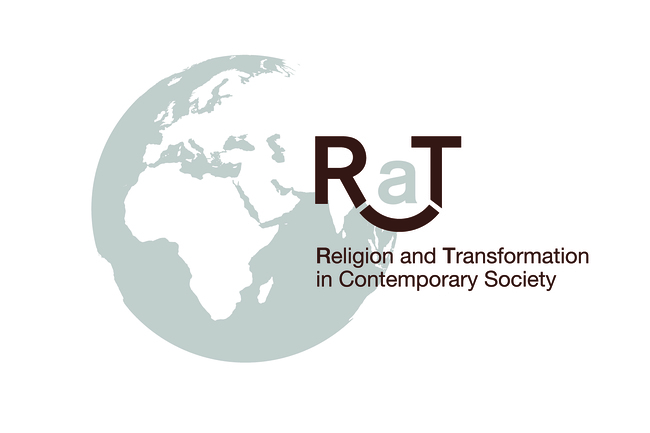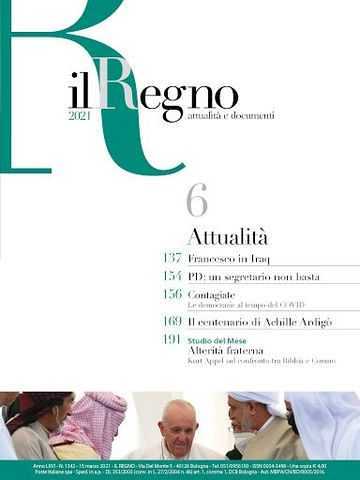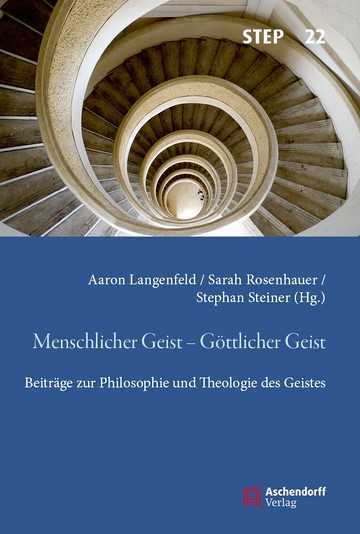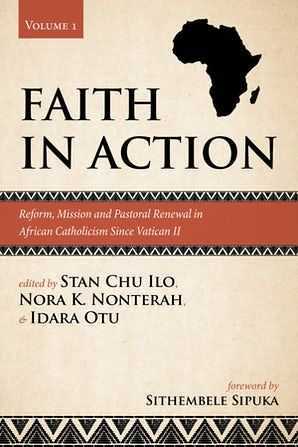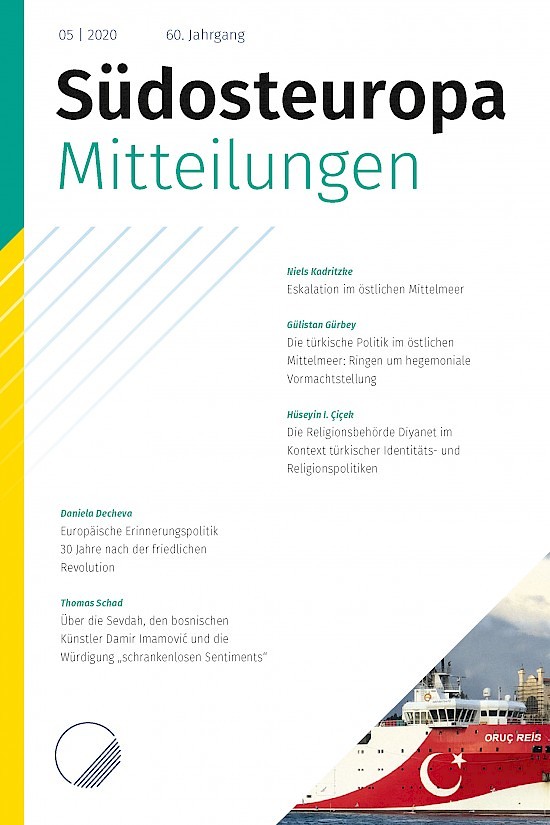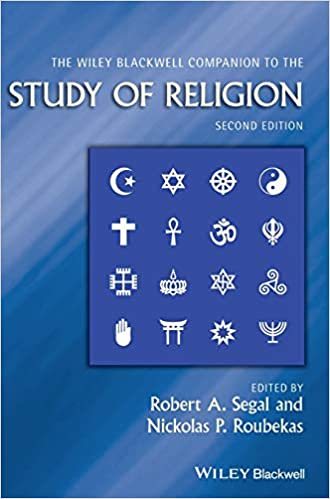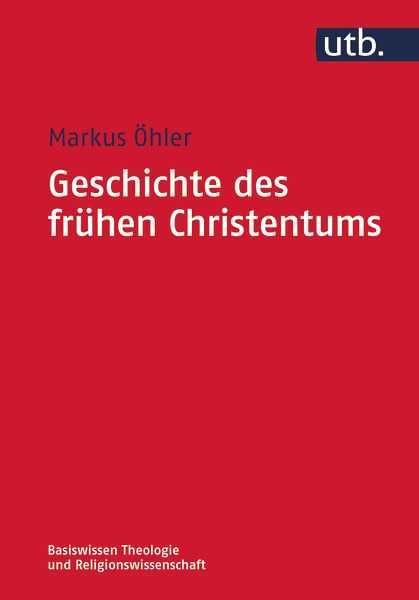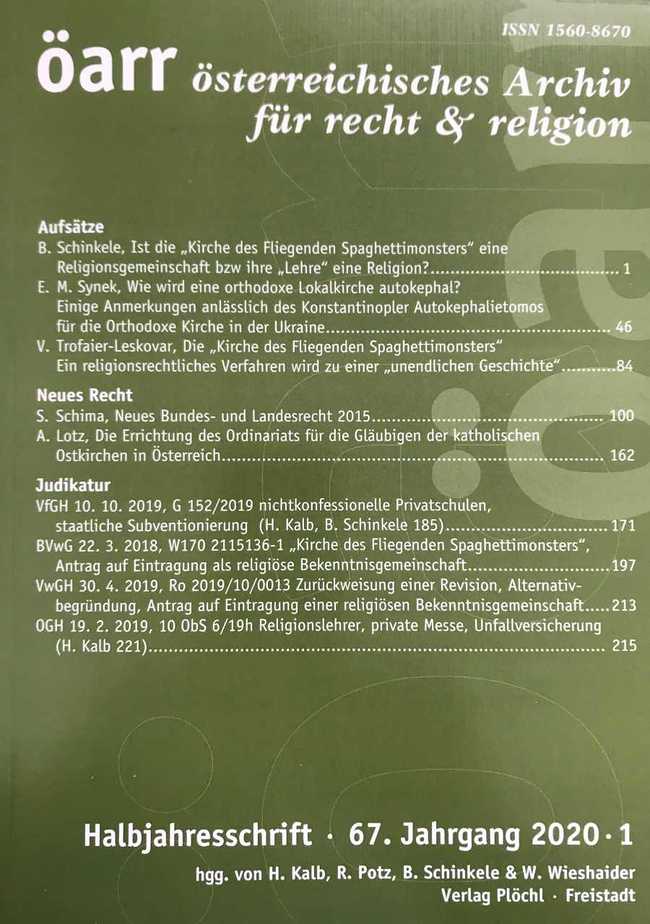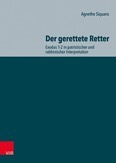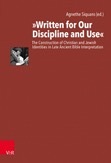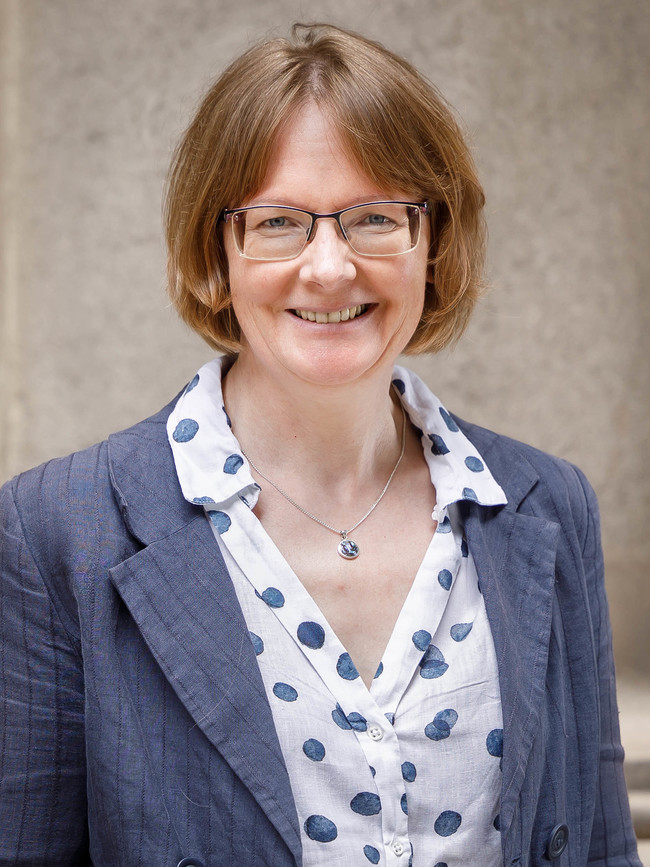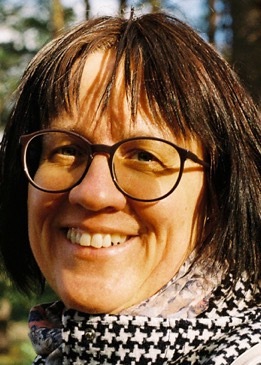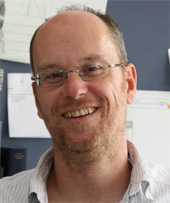|
|
Dear members and friends of RaT,
As the sunshine gets warmer and warmer, we can luckily be out and about again. Although a certain lethargy is being ascribed to these times due to uncertainty and everyday restrictions, our members have been conducting and publishing their research.
Therefore, in this newsletter we report on new publications, current research projects and events of RaT members. We also have the pleasure to introduce you to some new members of the research centre!
In this issue, we are pleased to present you with a wealth of exciting and diverse contributions on our blog:
Dive into the latest blog entries, for example on the work of sociologist and philosopher Zygmunt Bauman, on the Viennese project Campus of Religions and the role of the University College of Teacher Education (KPH) as an actor in this interreligious dialogue, or on the 100th anniversary of the publication of Wittgenstein's Tractatus logico-philosophicus, on the occasion of which RaT member Esther Ramharter recommends returning to this classic once again. Rüdiger Lohlker introduces our readers to the little explored phenomenon of Muslim Influencers. Eventually, as third part of our "LEGO® meets Bestattungsmuseum Wien"-series, Kurt Appel reflects on the cemetery and its character as a place of transition and a place that deeply questions our everyday reality.
We wish you a pleasant reading and hope you all are well!
Lisa Achathaler, Kurt Appel, Hannah Bleckenwegner, Jakob Deibl, Marlene Deibl, Martin Eleven, Daniel Kuran, Katharina Limacher, Marian Weingartshofer.
Please consider forwarding our newsletter to those interested in the topics we work on!
|
|
JRAT
As of now, free contributions to our Interdisciplinary Journal for Religion and Transformation in Contemporary Society can be published on BRILL's website prior to being linked to a certain journal issue.
Please find the latest free contribution "Towards a Theological Anthropology of the Digital Age" by Gemma Serrano and Alessandro de Cesaris here.
|
|
Appel, Kurt: Nel confronto tra Bibbia e Corano: l'alterità fraterna, in: il Regno attualità (6/2021), pp. 191-201.
Theologian Kurt Appel addresses the question of the biblical canon in the two traditions (Jewish and Christian) in relation to the Qur'an.
Link to the publication.
|
|
|
Appel, Kurt: Hegel und das Offene der Gottesfrage,
in: Aaron Langenfeld/Sarah Rosenhauer/Stephan Steiner (eds.): Menschlicher Geist - Göttlicher Geist. Beiträge zur Philosophie und Theologie des Geistes.
Aschendorff Verlag: Münster 2021, pp. 229-248. Peer reviewed
Interpreting selected key passages of Hegel’s “Phenomenology of Spirit”, this essay connects the question of God with the search for the “Open” – not expressible in conventional propositional language. On this threshold of what is conceivable and speakable, Hegel develops the dialectical method of his speculative philosophy. He becomes aware of a rupture within the Absolute that refers to an absolute openness which is the other of any concluding representation. The “Open” which is connected with the index “God” requires an exercitium of both theoretical (noesis noeseos, thinking of thinking) and practical (self-emptying, being for, forgiving …) nature.
Link to the publication.
|
|
|
Appel, Kurt: Reform and Renewal in Local Churches: Lessons from Rosmini and Pope Francis,
in: Stan Chu Ilo/Nora K. Nonterah/Idara Otu (eds.): Faith in Action, Vol. 1: Reform, Mission and Pastoral Renewal in African Catholicism Since Vatican II. With a foreword by Sithembele Sipuka.
Pickwick Publications: Oregon 2020, pp. 75-95. Peer reviewed.
Link to the publication.
|
|
|
Çiçek, Hüseyin: EICTP Expert Paper: Ülkü Ocakları. Turkish-Islamist Far-Right Extremism.
Known in Turkish as the Ülkü Ocakları (also called Grey Wolves), the group is a far-right extremist organization characterized by their Turkish-Islamist beliefs. It is active in Germany and Austria in different Turkish and Turkish-Islamist organizations. This analysis aims at offering a comprehensive overview of the historic positioning and the interplay of Islam and Turkish nationalism throughout the 19th and 20th centuries. The paper concludes with some recommendations how to deal with this particular Turkish-Islamist, far-right group within the framework of democratic and education-policy oriented initiatives. Thus, the contribution intends to serve as a first step to establish further critical studies on the heterogeneous, Turkish immigrant society.
Link to the paper.
|
|
|
Çiçek, Hüseyin: Die Religionsbehörde Diyanet im Kontext türkischer Identitäts- und Religionspolitiken. Zum Zusammenspiel religiöser und staatlicher Akteure in der Türkei seit 1923. In: Südosteuropa-Mitteilungen 60 (5/2020), pp. 39-55.
The article examines the political activities of the Turkish Directorate for Religious Affairs (Diyanet) since 1923 which is the most important religious institution inside the Turkish state. Together, the Turkish state and the Directorate for Religious Affairs determine the interpretation of (the “right”) Islam in Turkey. This form of cooperation has led to a close connection between both authorities since 1923. Based on the thesis that Diyanet was established to support the religious and political interests of Turkish governments, even if they deliberately pursue undemocratic politics, it is not surprising that the Diyanet supports and legitimizes the AKP’s authoritarian course.
Link to the publication.
|
|
|
Dessì, Ugo/Sedda, Franciscu (eds.): Glocalization and Everyday Life: Constraints and Incentives (Special Issue). Glocalism. Journal of Culture, Politics and Innovation (3/2020).
About thirty years after its introduction into the academic debate, the idea of glocalization continues to be acknowledged as a source of inspiration by many scholars across disciplinary boundaries.
At the general level, there would seem to be at present a large consensus on one of the conceptual premises upon which the discussion of the glocal was originally based, that is, the identification of the binary global-local as a relational and interpretive frame not objectifiable in terms of the simple opposition/tension between two spatial dimensions. From our perspective, too, this is probably the most productive way of using the glocal to interpret dynamics of social change in a globalizing context characterized by increasing interconnectedness.
Link to the publication.
|
|
|
Dessì, Ugo: Resonance as a Constraining Factor in the Glocalization of Religion. In: Glocalism. Journal of Culture, Politics and Innovation (3/2020), pp. 1–21.
In this paper, I approach the phenomenon of resonance in the glocalization of religion from a pragmatist perspective with the aim to contribute to the understanding of these still largely overlooked dynamics. Building on my theory on the global repositioning of religion through insights and suggestions coming from sociology (notably the work of Terence McDonnell and his colleagues) and other disciplines such as anthropology and semiotics, I contend that cultural objects circulating in the global cultural network can become relevant to religious actors and trigger a resonance because they are useful to solve specific religious problems.
Link to the publication.
|
|
|
Segal, Robert A./Roubekas, Nickolas P. (eds.): The Wiley-Blackwell Companion to the Study of Religion, 2nd ed., Hoboken et al., UK: Wiley-Blackwell 2021.
The second edition of The Wiley Blackwell Companion to the Study of Religion is both an introductory and rigorous handbook on contemporary approaches to the study of religion, making it ideal for undergraduate students at the beginning of their studies in the humanities. The publication, edited by Robert Segal and Nickolas P. Roubekas, who is currently working as Assistant Professor of Religious Studies at the University of Vienna, covers a wide range of perspectives, including globalization, cognitive science, law, esotericism, gender, functionalism, terror, modernism, and postmodernism. In addition, the volume includes a comprehensive examination of various approaches to the study of religion, such as anthropology, economics, phenomenology, philosophy, psychology, sociology, and theology. The work is complemented by a selection of current trends in extremism and violence, with chapters on terror, fundamentalism, and nationalism. The Wiley Blackwell Companion to the Study of Religion is a valuable resource not only for students but also for specialists in the fields of religious studies, theology, sociology, anthropology, psychology, political science, history, and philosophy.
The book features, among many others, a contribution by RaT member Karl Baier on Esotericism (pp. 229 - 240).
Link to the publication.
|
|
|
Öhler, Markus: Die Geschichte des frühen Christentums. Göttingen: Vandenhoeck & Ruprecht 2018.
This volume reconstructs the history beginning with the life of Jesus up to the first process of consolidation in the 130s. On the one hand, the book places special emphasis on the connection of early Christianity with antiquity, its rootedness in Judaism and Hellenistic-Roman culture. On the other hand, it is about presenting the diversification of Christianity from its beginnings, more precisely the different positions on the significance of the Torah for the community and its ethos as well as on basic theological questions. The reconstruction thus reveals how and by what factors early Christian identities developed. A translation for Baylor University Press is in preparation.
Link to the publication.
|
|
|
Kalb, Herbert/Potz, Richard/Schinkele, Brigitte/Wieshaider, Wolfgang (eds.): Österreichisches Archiv für Recht & Religion 67 (1/2020). Freistadt: Plöchl.
A new issue of the journal öarr has recently been published, including articles on the following topics:
- Is the "Church of the Flying Spaghetti Monster" a religious community and are its "teachings" a religion?
- How do local Orthodox churches become autocephalous?
- The establishment of the Ordinariate for the believers of the catholic Eastern Churches in Austria
Link to the publication.
|
|
|
Siquans, Agnethe: Der gerettete Retter. Exodus 1-2 in patristischer und rabbinischer Interpretation (Ioudaioi 12). Göttingen 2021.
Exodus 1‒2 tells the story of the oppression of the Hebrews in Egypt and the birth of the future savior Moses. Christian and Jewish exegetes in late antiquity interpreted this text from their own specific perspective, as part of their religious community. They approach the text with partly common, partly different presuppositions, hermeneutics and methods. In the background are always the religious practices and teachings of their own religious community. Thereby, processes of reception as well as rejection and demarcation become apparent. Especially the Christian interpretation of Scripture often shows polemics against Judaism, which has continued through the centuries. Nevertheless, there are also numerous points of contact and common motifs that recur ‒ alongside specifically Jewish and Christian traditions. Thus, a diverse picture of the biblical text emerges in patristic and rabbinic interpretation.
Link to the publication.
|
|
|
Siquans, Agnethe (ed.): Written for Our Discipline and Use. The Construction of Christian and Jewish Identities in Late Ancient Bible Interpretation (Ancient Scriptural Interpretation 1). Göttingen 2021.
Patristic and rabbinic biblical interpretations are significant contributions to the identity construction of late antique Christian and Jewish groups. The contributions in this conference volume illuminate the reception of biblical texts, themes and figures in patristic and rabbinic writings from the 2nd to the 8th century. They reveal processes of mutual demarcation, which are sometimes extremely polemical, sometimes only implicit and indirectly accessible.
Link to the publication.
|
|
|
Tiwald, Markus/Zangenberg, Jürgen (eds.): Early Christian Encounters with Town and Countryside: Essays on the Urban and Rural Worlds of Early Christianity. Göttingen: Vandenhoeck & Ruprecht 2021.
This volume contains the proceedings of two conferences held in Leiden (Netherlands) and Essen (Germany) convened by Markus Tiwald and Jürgen Zangenberg, dealing with the duality of town and countryside in early Christianity. Ever since Jesus walked the hills of Galilee and Paul travelled the roads of Asia Minor and Greece, Christianity has shown a remarkable ability to adapt itself to various social and cultural environments. Recent research has demonstrated that these environments can only be very insufficiently termed as "rural" or "urban". Neither was Jesus' Galilee only rural, nor Paul's Asia only "urban". On the background of ongoing research on the diversity of social environments in the Early Empire, this volume will focus on various early Christian "worlds" as witnessed in canonical and non-canonical texts.
Link to the publication.
|
|
|
RESEARCH
New third-party funded projects
|
|
Alina Isa Alak: Uncharted Anti-Radicalism Strategies:
Challenging the Interpretative and Hermeneutical Methodologies of the Salafi-Jihadi Theology – SJMethod.
On 1 August, a new research project is about to start at the Institute of Oriental Studies in cooperation with RaT. The project is conducted by Alina Isa Alak who was previously based at the University of Bucharest. She has researched and published on gender issues, on the hermeneutics of Islamic scriptures and also on aspects of neo-fundamentalist movements in contemporary Islam. The coordinator of the project is Rüdiger Lohlker, a scholar of Islamic Studies at the Institute for Oriental Studies at the University of Vienna and member of the RaT Research Centre.
The aim of the project is to examine the relationship between the crisis of Quranic epistemology and hermeneutics and extremist Salafist-jihadist theology. The exclusive claim to knowledge of the Qur'an and the hadith collections, which forms the main basis for the justification of the jihadist theology of violence and the associated devaluation practices, is being analysed. The project is funded for two years as Marie Skłodowska-Curie Individual Fellowship by the European Commission and for one year by the University of Vienna.
|
|
Christian Danz: Hybridedition
‚Schellings Berliner Philosophie der Offenbarung‘ (1841-45)
With this hybrid edition project funded by the FWF in March 2021, Friedrich Wilhelm Joseph Schelling's (1775-1854) Berlin Lectures on 'Philosophy of Revelation (1841-45)' will be made accessible to researchers in a text-critical edition by the Faculty of Protestant Theology of the University of Vienna.
|
|
|
The project is the basis for two further modules dedicated to the digital edition of the 'Berlin Schelling':
- Module 1: Schelling's Berlin Philosophy of Revelation (1841-1845)
- Module 2: Schelling's Berlin Philosophy of Mythology (1842-1846)
- Module 3: Schelling's Berlin exposition of negative or pure-rational philosophy (1846-1854)
The project "Electronic Hybrid Edition 'Schelling's Berlin Philosophy of Revelation (1841-1845)'" addresses this serious desideratum of research and creates for the first time a digital text-critical and work-genetic edition of the Berlin Philosophy of Revelation. The scientific aim of the project is to break the monolithic structure of the Philosophy of Revelation in the "Sämmtliche Werke" and to scientifically reconstruct its development in terms of works and text history.
|
|
UPCOMING EVENTS
"Phrophetesses - Part 3", online
On Wednesday, 12 May 2021 at 7 pm, Prof. Agnethe Siquans sheds ligh on "Women prophets in the early Christian communities".
For more information click here.
"Translation, Theosophy, and the Global History of Religion", online
Lecture by Mriganka Mukhopadhyay, 20 May 2021, 6:30 - 8 pm
In this talk, I will discuss how the process of translation is important for studying the global history of alternative religious currents. Against the backdrop of British colonialism in India, Orientalist discourses, and the transcultural intellectual encounters of the nineteenth century, I will reflect upon the several translational projects taken up by the Theosophical Society and its members in the period between the last quarter of the nineteenth century and the first half of the twentieth century.
Please register with an email to: patricia.mayer@univie.ac.at
"Resistance Required? Identity and gender struggles in the horizon of right-wing populism and Christian fundamentalism in Europe today", online
On Thursday, 27 May 2021 from 6 to 8pm, Dr. Rita Perintfalvi, talks about illiberal identitarian democracy that offers no space for the "other" and thus mobilises an identity struggle against diversity and plurality. In (ultra)conservative church circles - just as in the context of the New Right - an outdated image of society is being preserved. This is not just a classic conservative backlash against gender and LGBTQ equality, but much more, because: "gender is a symbolic glue". Consequently, illiberal forces threaten the political consensus and liberal democracy that emerged after the Second World War on the basis of human rights.
The lecture ist part of the IPW lecture series. Please register here to participate in the lecture.
"Continuity and Actuality of Anti-Semitism. An Austrian and Global Challenge", hybrid (in the Sky Lounge of the University of Vienna as well as via online streaming)
On Thursday, 27 and Friday, 28 May 2021, a conference takes place against the background of the Year of Remembrance and Commemoration 2021: The expulsion and murder of hundreds of Jews between 1420 and 12 March 1421 are known as the Vienna Gesera (Hebrew for doom). The conference under the scientific direction of Assoc. Prof. Dr. Regina Polak, MAS is organised by the Sir Peter Ustinov Institute in cooperation with the Faculty of Catholic Theology, the Faculty of Protestant Theology and the Research Centre "Religion and Transformation in Contemporary Society".
Speakers include Rabbi Andrew Baker (Personal Representative of the OSCE for combating anti-Semitism), Prof. Ruth Wodak (language sociologist and publicist), Prof. Wolfgang Treitler (KTF), Prof. Martin Rothgangel (ETF), Dr. Andreas Peham (anti-Semitism researcher), Dr. Julia Spichal (ETF). There will also be a focus on the presentation of practical projects to combat anti-Semitism and on the perspective of young people.
Further information can be found here.
"A philosophy of limits. Contours of the Philosophy of Life by Albert Camus", online
This lecture, organised by the Institute of Philosophy of the Heinrich Heine University Düsseldorf, will be held online by Prof. Johann Schelkshorn on 26 June 2021 at 4:30 - 6 pm.
Further information can be found here.
Please register with an email to: agnes.leyrer@univie.ac.at
PREVIEW
"The True, the Good, and the Beautiful"
XXV. Congress of the German Society for Philosophy
5 – 8 September 2021
Prof. Johann Schelkshorn is in charge of the section on Philosophy in the Latin American World, as well as giving a lecture on "Intercultural philosophy as a global discourse on modernity".
More information can be found here.
Habermas Congress: "A History of Philosophy"
22 – 24 September 2021
Venue: Otto-Mauer-Zentrum, Währinger Straße 4, 1090 Wien (online streaming will be available).
The conference will focus on Habermas' most recent opus magnum "A History of Philosophy" (2019). The contributions of the invited speakers will deal on the one hand with the main chapters of the book, and on the other hand with the overall conception.
More information will follow soon in the newsletter and on the website of RaT.
|
|
THIRD MISSION ACTIVITIES
RaT members contribute to public discourse by writing in newspapers, giving statements in television and podcasts, and by publishing on our blog. These are two of our most recent blog entries as well as our latest three-part series:
RAT BLOG
"For Bauman, a successful life cannot be regarded as a final state, but must be understood as a constant task."
In this contribution, Christian Macha shows how the Polish-English sociologist and philosopher Zygmunt Bauman, who died in 2017, sets out the possibilities for a happy life, especially in the book "The Art of Life".
"The cooperation of ten different religious communities aims to train people in pedagogical professions, especially in religious subjects, for primary and secondary education, as well as to offer further and advanced training in this field."
In this blog entry, Elisabeth Waldl explains the role of the KPH as an actor in interreligious dialogue in the Campus of Religions project in Vienna's Seestadt Aspern.
"The Tractatus provides a precise analysis of the possibilities of language, and in particular of the role that logic plays in it. Starting to read from the back has the advantage that the statements that you can't understand tell you what to look for so that you can understand them."
On the occasion of the 100th anniversary of the publication of Wittgenstein's Tractatus logico-philosophicus, RaT member Esther Ramharter recommends returning to this classic once again.
|
|
"In fact, the cemetery is in many ways an almost impossible place in our contemporary world. It is associated with the idea of a final rest - in the midst of a society that has to turn faster and faster in order not to perish. Silence and relaxed, joyful idleness are faced with horror by this society."
In this blog entry, Kurt Appel reflects on the cemetery and its character as a place of transition and a place that deeply questions our everyday reality. This contribution is the third part of a series which can now be read on our blog:
At a time when there is a lot of talk around illness and death, but little direct talk about it, it is worth taking a look at the website of the Vienna Funeral Service. During the Covid pandemic, it has expanded its offer and sells, amongst others, LEGO® component kits centered around the overall topic of "death". Members of the RaT team took this as an opportunity to scientifically (and humoristically) reflect on this phenomenon which playfully brings death into the living room.
|
|
PRESS FEATURES
Radio Klassik Stephansdom
Markus Tiwald
In the course of the Easter Octavian, Radio Klassik Stephansdom featured Markus Tiwald giving impulses on the Gospels of the day: Jesus meets the women and the men from his circle of disciples, Jesus meets Mary of Magdala and the unbelieving Thomas. But the first ones Jesus meets and to whom he gives the task of proclaiming the message of faith are the women. Markus Tiwald emphasises this on Tuesday. The disciples, on the other hand, need a long time before they become proclaimers. Markus Tiwald calls it the "earthy unbelief" of the disciples, which is also very understandable from a human point of view...
To be listened here.
Philosophisches Forum, ORF 2
Elisabeth Holzleithner
Under the topic "Does Corona show what we are really like?", scholars from various disciplines - among them RaT member Elisabeth Holzleithner - reflected on the following questions: To what extent does the pandemic exacerbate our long-standing social problems? How does Corona change us as a society, our relationships and each individual person? How can a new beginning emerge from this? Is systemic change inevitable?
More information can be found here.
Praxis - Religion und Gesellschaft, Ö1
In this radio feature, Katharina Limacher talks about rituals around death and dying in different religions and the possible change of these rituals due to the pandemic.
Articles by Hüseyin Çiçek
Ahval News: "Society and Islam: the case of Austria / Islam and Muslims in Austria"
Zenith: Why the AKP is facing a crisis
Articles by Regina Polak
Der Standard: "The Church in a Conflict of Values"
wina Magazin: "Anti-Semitism is a problem of non-Jews"
Articles by/featuring Richard Potz
Die Furche: "Prayer in Parliament? Ban on headscarves? On Politics and Religion"
Salzburger Nachrichten: "No Easter peace in the Diocese of St. Pölten - harsh criticism of Bishop Schwarz"
Der Standard: "Legal expert: Attacks by the ÖVP leadership on church privileges come to nothing"
|
|
WELCOME TO RAT, AGNETHE SIQUANS!
Agnethe Siquans is Professor for Old Testament Studies and Vice Programme Director at the Department of Biblical Studies at the Faculty of Catholic Theology.
She wrote her habilitation in 2010 on "The Old Testament prophetesses in the patristic reception: texts - contexts - hermeneutics".
From October 2010-2019, she worked as an associate university professor at the Institute for Old Testament Biblical Studies. In 2012, she completed a Bachelor in Jewish Studies.
Agnethe Siquans has already published articles in the RaT Journal (e.g. together with Marianne Grohmann) as well as in the research centre's print series.
|
|
|
WELCOME TO RAT, UTA HEIL!
Uta Heil is Professor for Church History at the Faculty of Protestant Theology at the University of Vienna.
After finishing her Dissertation at the University of Erlangen on Athanasius of Alexandria and working on the critical edition of Athanasius’ Works, her research has focused on ecclesiastical developments during the Migration Period. She was “Heisenberg-Stipendiatin” of the German DFG and guest professor at the University of Jena and at the University of Tübingen, and since 2015 is professor for Church History at the University of Vienna. She is one of the main editors of the Journal of Ancient Christianity, published by De Gruyter, and currently funded research projects include the critical edition of the “Dokumente zum arianischen Streit,” the digital critical edition of the Expositiones in Psalmos of Pseudo-Athanasius of Alexandria and the “The Apocryphal Sunday in Late Antiquity and the Early Middle Ages”. She is also coordinating the new research project “Crafting Emotion: The Late Antique Panegyris as Embodied Experience.”
|
|
|
WELCOME TO RAT, MARTIN FIEDER!
Martin Fieder is an associated professor of evolutionary demography at the Department of Evolutionary Anthropology (University of Vienna). He studied Zoology and Informatics and finished his PhD in 1998 at the University of Vienna with a thesis on the analysis of animal body movement. Since 1997, Dr. Fieder has worked within the framework of the university reforms UOG 1993. From 2000-2011, he worked in the field of strategic planning in a staff position at the rectorate of the University of Vienna under the direction of Rector Georg Winckler. Particularly during this time, Dr. Fieder developed his scientific interest in evolutionary explanations on human behaviour and completed his habilitation thesis in Evolutionary Anthropology in 2012 at the University of Vienna. Since 2011, he has been working at the Department of Evolutionary Anthropology, since 2017 as associated professor of Evolutionary Demography (tenure track).
|
|
|
WELCOME TO RAT, MARKUS ÖHLER!
Markus Öhler is Professor for New Testament Studies at the Faculty of Protestant Theology. His research focus is on the early history of Christianity with a more distinct focus on social history.
He has published widely on voluntary associations, Graeco-Roman inscriptions and different forms of religiosity in the 1st and 2nd cent. CE. Apart from that, he is currently preparing a commentary on Paul's Letter to the Romans and a monograph on the development of Christianity in Bithynia and Pontus (Asia Minor). His most recent publication is a comprehensive History of Early Christianity (2018).
Markus Öhler has already contributed to the research centre's print series in its second volume.
|
|
|
|
|
|
|
|

